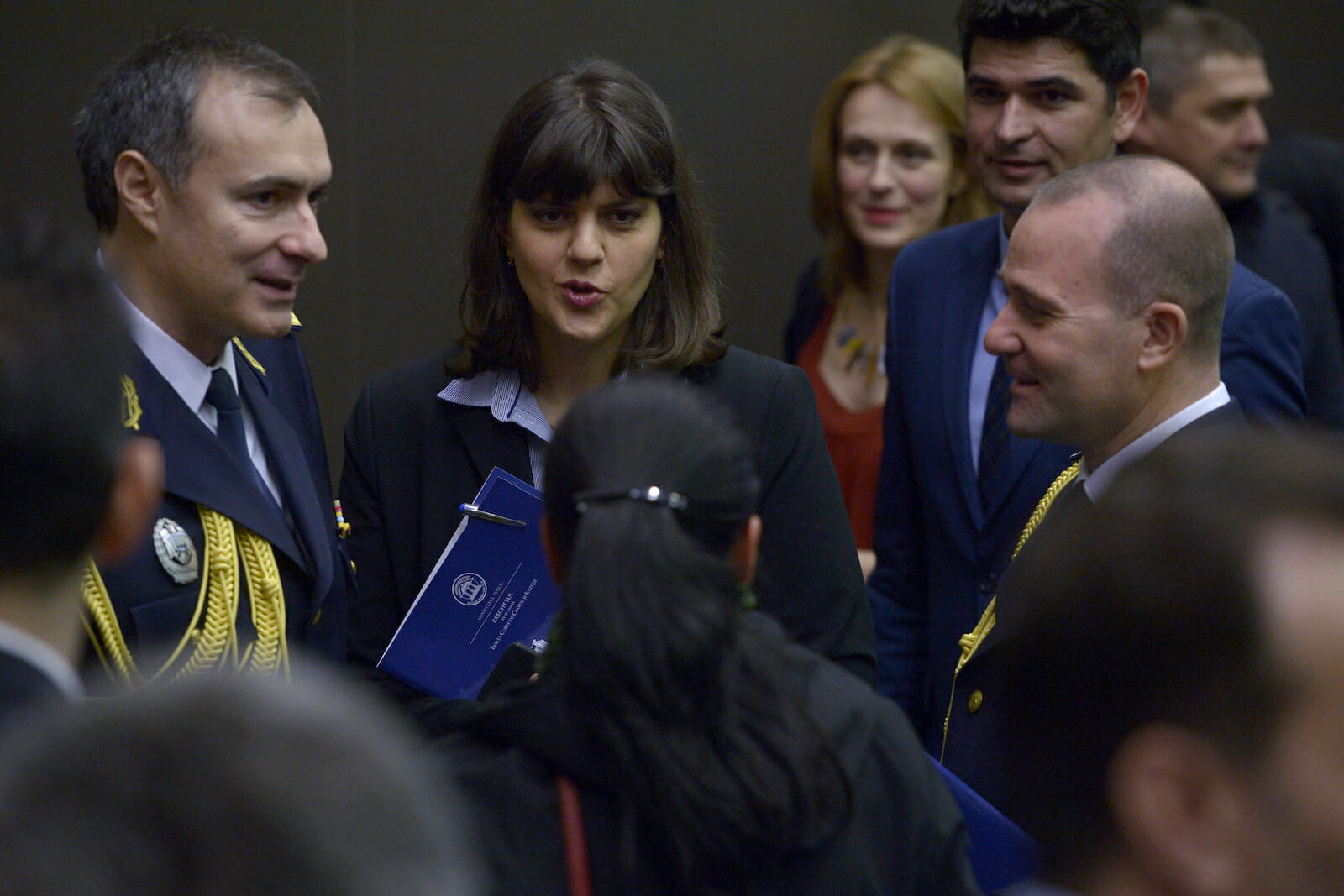
Romania’s Former Anti-corruption ‘Superstar’ now Being Targeted
Romania’s prestige presidency of the European Union, its first since it joined the bloc in 2004, threatens to be overshadowed by unexpected events.
There are new and potentially highly damaging revelations that a leading Romanian candidate for the brand new post of European Prosecutor General now finds herself under official investigation.
The disclosures against Laura Codruta Kövesi come at a bad time for Romania, a country that some would argue is only now emerging from its Communist past.
Hopes were high that when the country took over the rotating six month presidency on 1 January, the first time since the country’s EU accession, it was a chance for Romania to promote itself on the world stage.
What is clear is that the Presidency, during which Romania will steer the EU agenda for the first half of 2019, comes at probably the most critical period in the entire history of the bloc.
Migration, Brexit, the rise of populist parties and other challenges are putting the EU under strain as never before.
But, rather than Romania’s Presidency and the EU, it is the details of the domestic investigation into Ms. Kövesi that are currently making all the headlines in Romania.
In the bigger scheme of things, this matters because Ms. Kövesi just happens to also be a leading candidate for the role of European Prosecutor General at the European Public Prosecutor’s Office, a newly created agency which will seek to tackle EU wide fraud and corruption.
The 45-year-old is scheduled to appear for interview on 26 February at the European Parliament for the prestigious new role at the agency. But, instead of preparing for her appearance in Brussels, she now finds herself under investigation in Romania for alleged abuse of power, bribery and false testimony.
She strenuously denies any wrongdoing and has suggested that the allegations against her may be politically motivated. She has indicated she may take the case to the European Court of Human Rights in Strasbourg.
Even so, she received a summons on Wednesday to appear before the Section for Investigation of Judicial Crimes in Romania.
The summons is believed to relate to a complaint filed in December regarding the repatriation of a Romanian man from Indonesia.
Ms. Kövesi is a former chief prosecutor at Romania’s Anti-Corruption Directorate, known locally as DNA. This was created in 2002 to tackle corruption, an issue that seemed systemic in Romania. In 2007, Brussels put Romania – and Bulgaria – under a mechanism to monitor judicial reform and the fight against corruption.
She took over the DNA in 2013 and, with its investigations of a prime minister, former government ministers, media moguls, judges and prosecutors, the apparent success of the DNA under her leadership thrust her into the limelight.
The agency, at the time, was trusted by twice as many people as the government, opinion polls suggested. But her spell leading anti-corruption efforts in Romania now threatens to come back to haunt her.
After 4 years, Ms. Kövesi left her role as the head of the DNA after the discovery of alleged “secret protocols” between the secret services and the judiciary that were signed during Ms. Kövesi’s time in office. The Constitutional Court found last month that the protocols are unconstitutional.
Ms. Kövesi’s nomination for the role of European Prosecutor General, meanwhile, has met with opposition in some influential quarters.
One of those opposed to her being appointed is Tudorel Toader, Romania’s Minister of Justice, who has written to his counterparts from other EU countries to oppose her nomination. He explained that his opposition was based upon Ms. Kövesi’s alleged role and accountability in the protocols issue and the way that those protocols are said to undermine democratic freedoms and norms. Mr. Toader referenced in his letter comments made by a European Commissioner calling for an investigation into the protocols.
The former basketball player and daughter of a prosecutor has been described by media as “softly-spoken” and “quiet.” Twelve years ago, she became Romania’s youngest prosecutor general and the first woman ever to hold the office.
But, equally, she also has her critics, who say that the anti-corruption crackdown she once led amounted to a witch-hunt, unfairly targeting certain people and parties.
An EU selection panel this month named Ms. Kövesi as its first choice to lead the new European Public Prosecutor’s Office, which by 2021 is due to start investigating the theft of EU funds and major cross-border tax fraud.
However, an international lawyer based in Bucharest commented:
It is astonishing to see how European politicians have been willing to associate themselves with Laura Codruta Kövesi’s candidacy for this top European prosecutor job.
Ultimately, she is undeniably linked to the protocol affair in Romania. It is impossible to overstate the significance of this in Romania, for a country that has lived through the darkest days of the Securitate. Romanians cannot overlook such similar interference in the judiciary in the present day, after such a sinister past. It’s hard to believe senior European politicians can overlook this conduct taking place right here in the EU. Now that further investigations are taking place about her, perhaps the Brussels elite need to reconsider their seemingly unconditional adoration of Kövesi?
So, rather than focusing on how the country can help the EU navigate its way through probably the most turbulent time it has ever experienced, the spotlight in Romania currently is firmly fixed on its controversial former corruption ‘star.’
Clearly, the EU will be very closely following events of its presidency holder in the coming days and weeks.

